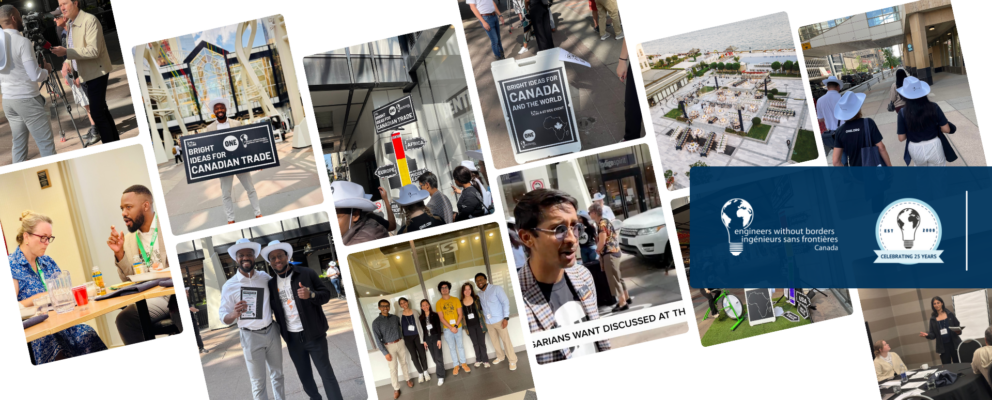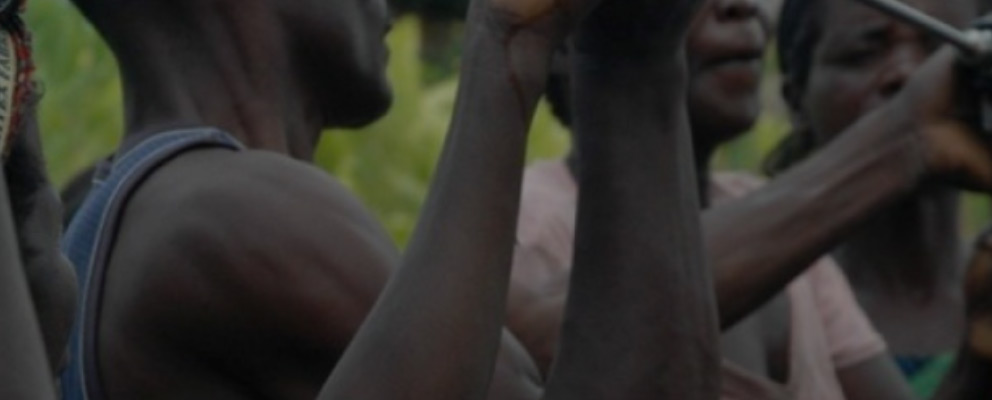
Africa Can’t Be a Footnote at the G7
The G7 has come and gone. The summit ended more smoothly than Canada’s last hosting, but the key question remains: what was accomplished?
At EWB Canada, we had one clear goal going into this year’s G7: bring Africa meaningfully to the table.
President Cyril Ramaphosa’s attendance was a welcome step — but a symbolic one only. Beyond that, Africa was barely present in the conversation.
And yet, Africa is central to every priority Canada set for this G7:
- Peace and security: Africa is home to both conflict and local peacebuilding.
- Energy transition: Africa holds the world’s most untapped renewable energy potential, and with the momentum of Mission 300, now is the time to invest.
- Digital infrastructure: Africa’s tech sector is growing faster than any other region.
- Economic growth and trade: Africa is launching the world’s largest free trade area with the African Continental Free Trade Agreement.
- Jobs and Economic Growth: By 2030, half the world’s new workers will be African.
Africa matters — not as a beneficiary, but as a partner. Africa is a driver of solutions to global challenges.
While no official communique was released, the Chair’s Summary touched on the right issues. But Africa’s absence from the outcomes is a missed opportunity.
Ahead of the summit, EWB Canada was on the streets of Calgary calling on Canada to use the G7 to demonstrate that Africa is a partner for the future. Unfortunately, that call went unanswered.
EWB Canada will continue to advocate for a bold shift in Canada’s foreign policy, as we have historically.
This time, we’re advocating that Canada sees Africa not as a development case, but as a strategic ally.
As Canada’s G7 presidency continues, and with South Africa leading the G20 in November, there are still opportunities for meaningful leadership.
Africa can no longer be a footnote.
Together, let’s advocate for a different future.
Le G7 est arrivé et est reparti. Le sommet s’est terminé plus en douceur que le dernier organisé par le Canada, mais la question clé demeure : qu’est-ce qui a été accompli ?
À ISF Canada, nous avions un objectif clair avant le G7 de cette année : amener l’Afrique de façon significative à la table.
La présence du président Cyril Ramaphosa a été une étape bienvenue, mais uniquement symbolique. Au-delà, l’Afrique a été à peine présente dans les discussions.
Pourtant, l’Afrique est au cœur de toutes les priorités fixées par le Canada pour ce G7 :
- Paix et sécurité : L’Afrique est le théâtre de conflits et de la consolidation de la paix au niveau local.
- Transition énergétique : L’Afrique possède le potentiel d’énergie renouvelable le plus inexploité au monde et, grâce à l’élan de la Mission 300, le moment est venu d’investir.
- Infrastructure numérique : Le secteur technologique africain se développe plus rapidement que toute autre région.
- Croissance économique et commerce : L’Afrique lance la plus grande zone de libre-échange au monde avec l’Accord de libre-échange continental africain.
- Emplois et croissance économique : D’ici 2030, la moitié des nouveaux travailleurs dans le monde seront africains.
L’Afrique compte – non pas en tant que bénéficiaire, mais en tant que partenaire. L’Afrique est un moteur de solutions aux défis mondiaux.
Bien qu’aucun communiqué officiel n’ait été publié, le résumé du président a abordé les bonnes questions. Mais l’absence de l’Afrique dans les résultats est une occasion manquée.
Avant le sommet, ISF Canada était dans les rues de Calgary pour demander au Canada d’utiliser le G7 pour démontrer que l’Afrique est un partenaire pour l’avenir. Malheureusement, cet appel est resté sans réponse.
ISF Canada continuera de plaider en faveur d’un changement audacieux dans la politique étrangère du Canada – un changement qui considère l’Afrique non pas comme un cas de développement, mais comme un allié stratégique.
Alors que la présidence canadienne du G7 se poursuit et que l’Afrique du Sud dirigera le G20 en novembre, il y a encore des occasions de faire preuve d’un leadership significatif.
L’Afrique ne peut plus être une note de bas de page.
Ensemble, plaidons pour un avenir différent.

